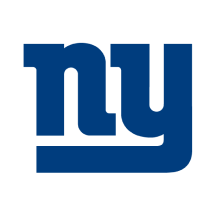
By Maxwell Akalaare Adombila and David Lewis
DAKAR/LONDON (Reuters) -A U.S.-based advocacy group has filed a lawsuit in Washington accusing Apple of using minerals linked to conflict and human rights abuses in the Democratic Republic of Congo and Rwanda despite the iPhone maker's denials.
International Rights Advocates (IRAdvocates) has previously sued Tesla, Apple and other tech firms over cobalt sourcing, but U.S. courts dismissed that case last year.
French prosecutors also dropped Congo's case against Apple subsidiaries in December over conflict minerals, citing lack of evidence. A related criminal complaint in Belgium is still under investigation.
Apple denied any wrongdoing in response to Congo's lawsuits, saying it had instructed its suppliers to halt the sourcing of material from Congo and neighbouring Rwanda.
It did not immediately respond to requests for comment on the latest complaint.
IRAdvocates, a Washington-based nonprofit that tries to use litigation to curtail rights abuses, said in the complaint filed on Tuesday in the Superior Court of the District of Columbia that Apple’s supply chain still includes cobalt, tin, tantalum and tungsten linked to child and forced labour as well as armed groups in Congo and Rwanda.
CONGO IS A MAJOR SOURCE OF COBALT, TIN, TUNGSTEN
The lawsuit seeks a determination by the court that Apple’s conduct violates consumer protection law, an injunction to halt alleged deceptive marketing, and reimbursement of legal costs, but does not seek monetary damages or class certification.
The lawsuit alleges that three Chinese smelters — Ningxia Orient, JiuJiang JinXin and Jiujiang Tanbre — processed coltan that U.N. and Global Witness investigators allege was smuggled through Rwanda after armed groups seized mines in eastern Congo, linking the material to Apple’s supply chain.
A University of Nottingham study published in 2025 found forced and child labour at Congolese sites linked to Apple suppliers, the lawsuit said.
Ningxia Orient, JiuJiang JinXin and Jiujiang Tanbre did not immediately respond to requests for comment.
Congo, which supplies about 70% of the world’s cobalt and significant volumes of tin, tantalum and tungsten - used in phones, batteries and computers - did not immediately respond to a request for comment. Rwanda also did not immediately respond to a request for comment.
'NO REASONABLE BASIS FOR LINKS TO ARMED GROUPS'
Apple has repeatedly denied sourcing minerals from conflict zones or using forced labour, citing audits and its supplier code of conduct. It said in December that there was “no reasonable basis” to conclude any smelters or refiners in its supply chain financed armed groups in Congo or neighbouring countries.
Congolese authorities say armed groups in eastern Congo use mineral profits to fund the conflict that has killed thousands and displaced hundreds of thousands. They have tightened controls on minerals to choke off funding, squeezing global supplies.
Apple says 76% of cobalt in its devices was recycled in 2024, but the IRAdvocates lawsuit alleges its accounting method allows mixing with ore from conflict zones.
(Reporting by Maxwell Akalaare Adombila in Dakar and David Lewis in London; Editing by Robbie Corey-Boulet and Emelia Sithole-Matarise)

 Reuters US Business
Reuters US Business
 Associated Press US and World News Video
Associated Press US and World News Video America News
America News AlterNet
AlterNet New York Post
New York Post NewsNation
NewsNation 104FM WIKY
104FM WIKY Reuters US Top
Reuters US Top Raw Story
Raw Story NFL New York Giants
NFL New York Giants